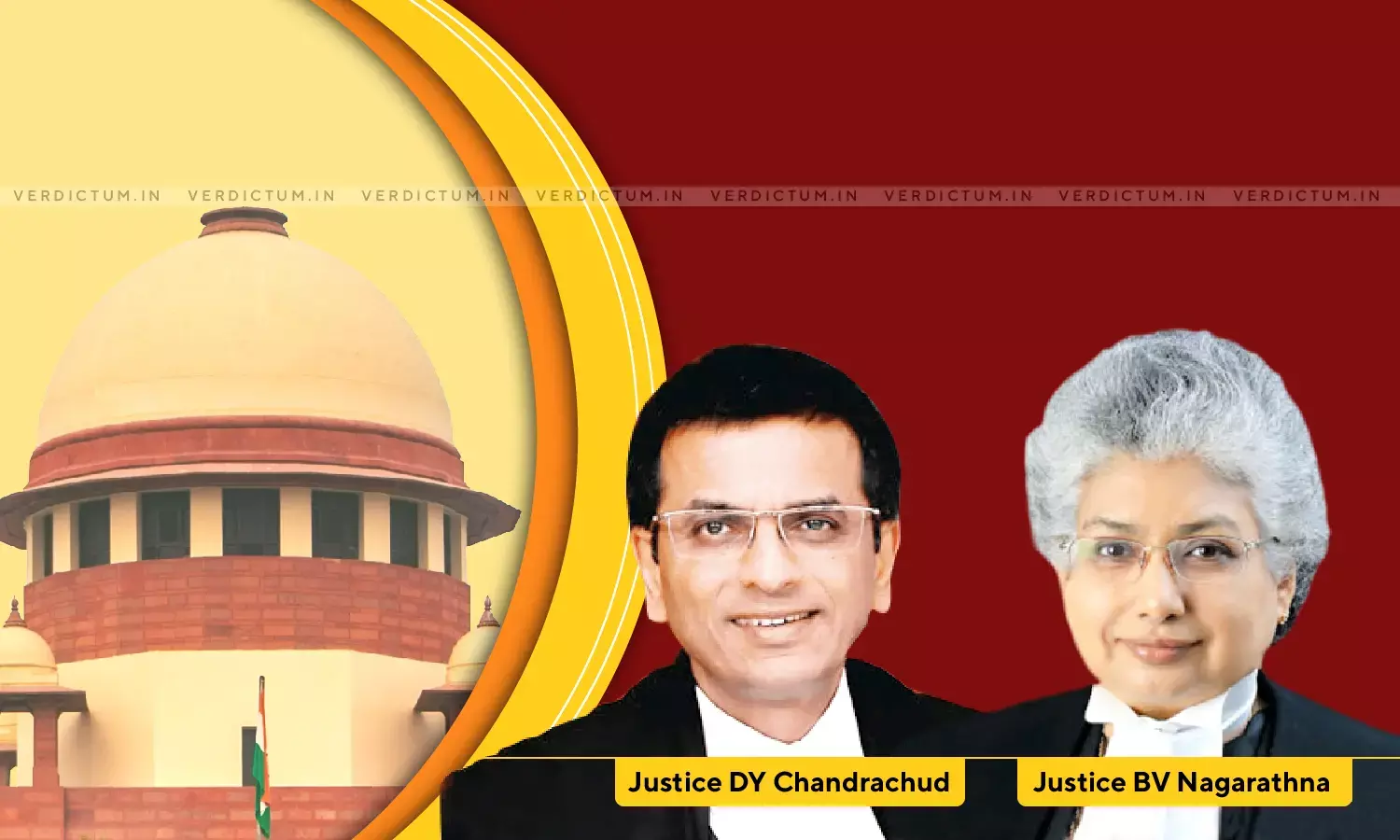Prisoner Has No Absolute Right To Claim Furlough: Supreme Court Highlights Difference Between Parole and Furlough

A Supreme Court Bench comprising Justice DY Chandrachud and Justice BV Nagarathna has ruled that a prisoner can't seek furlough as a matter of legal right and that it is subjected to limitations. The Bench also formulated principles differentiating furlough and parole while setting aside a judgment of the Gujarat High Court granting a 14-day furlough to Narayan Sai, the son of spiritual Guru Asaram Bapu, who is undergoing life imprisonment for raping a disciple at his Ashram at Surat. (read report)
The Bench cited Rule 3 and Rule 4 of the Prisons (Bombay Furlough and Parole) Rules 1959 to hold that rules don't confer a legal right on a prisoner to be released on furlough. While Rule 3 provides the eligibility criteria for grant of furlough for prisoners serving different lengths of imprisonment, Rule 4 imposes limitations.
"The use of the expression "may be released" in Rule 3 indicates the absence of an absolute right. This is further emphasised in Rule 17 which states that said Rules do not confer a legal right on a prisoner to claim release on furlough. Thus the grant of release on furlough is a discretionary remedy circumscribed by Rules 3 and 4 extracted above."
The Bench noted, "The principles may be formulated in broad, general terms bearing in mind the caveat that the governing rules for parole and furlough have to be applied in each context."
The Bench summarised the difference between a furlough and a parole thus:
(i) Furlough and parole envisage a short-term temporary release from custody;
(ii) While parole is granted for the prisoner to meet a specific exigency, furlough may be granted after a stipulated number of years have been served without any reason
(iii) The grant of furlough is to break the monotony of imprisonment and to enable the convict to maintain continuity with family life and integration with society
(iv) Although furlough can be claimed without a reason, the prisoner does not have an absolute legal right to claim furlough
(v) The grant of furlough must be balanced against the public interest and can be refused to certain categories of prisoners
In this case, the State of Gujarat had filed an appeal challenging the judgment of the Gujarat High Court of June 24 allowing the application moved by Sai to grant him furlough, which had been denied by the DGP on May 8. The DGP relied on the concurrent opinion of the ACP, DCP and Jail Superintendent to deny furlough taking into account the circumstances viz., (i) The gravity of the offences that the respondent has been convicted of, including, Sections 376(2)(c), 377, 354, 504, 506(2), 508 of the IPC, (ii) The criminal misconduct of the respondent, during the trial, including attempts to bribe public officials; threatening, assaulting and murdering of 21 witnesses by followers of the respondent; threatening police officials and inspectors of the Income Tax Department, (iii) Mass following of the respondent willing to commit offences at the instance of the respondent, and (iv) Illegal activities while in custody, such as keeping a mobile phone and attempting to establish contact with outsiders.
It was argued on behalf of Sai that he has been released on temporary bail and furlough leave on four occasions and no untoward incident was reported during his release. The furlough leave is a matter of right and is granted periodically to prisoners to continue their association with their families.
Solicitor General Tushar Mehta opposed the HC order by referring to the Bombay Furlough and Parole Rules to argue that furlough can't be granted mechanically as a matter of right. Under Sub-Rules 4, 6 and 10 of Rule 4, prisoners whose release is not recommended by the Commissioner of Police or the District Magistrate on grounds of public peace and tranquility, prisoners whose conduct is not satisfactory in the opinion of Superintendent of the Prison, and prisoners who have escaped or attempted to escape from custody or have defaulted in surrendering after release on parole or furlough, shall not be considered for release on furlough. Even if it is accepted that the prisoner is entitled for furlough fourteen days in a year after completion of a sentence of seven years, he already got furlough on December 2, 2020 and interim bail from January 31, 2021 to February 3, 2021, Mr.Mehta argued.
After hearing the parties, the Bench cited various judgments about parole and furlough and observed that a balance needs to be maintained between two competing interests while granting parole or furlough- that of reforming the convict on one hand and the public purpose and interests of society on the other.
The Bench took note of the negative opinion submitted by the Jail Superintendent that the respondent kept a mobile phone inside the jail illegally and attempted to make contact with the outside world. Rule 4(4) of the Rules provides for denial of furlough on grounds of disturbance to public peace and tranquility.
Looking at the report given by the DGP, the Bench stated, "The respondent and his father have a mass following of persons who owe loyalty to them and there is a reasonable apprehension of a disruption of public peace and tranquility. During the trial, attempts have been made to bribe public officials. The conduct after the trial, in jail, has not been shown to be above reproach."
Accordingly, the appeal was allowed and the impugned judgment of the Gujarat High Court was set aside.

